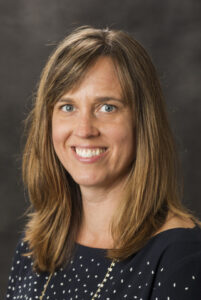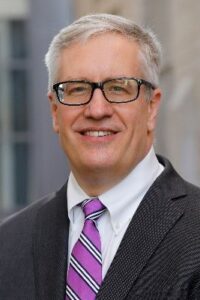Law Student and PILS Fellow Morgan Kaplan Describes the “Steps” Required of a Pro Se “Movant” in Family Court in Milwaukee County
 Early this semester, I had the privilege of meeting with Marquette law students who this past summer held Public Interest Law Society fellowships. These 25 individuals worked at organizations, geographically from Wisconsin to Chicago to Washington, D.C., with a variety of focuses—including public defender offices, legal services organizations, prosecutor’s offices, government agencies, and civil rights entities, scarcely to exhaust the list.
Early this semester, I had the privilege of meeting with Marquette law students who this past summer held Public Interest Law Society fellowships. These 25 individuals worked at organizations, geographically from Wisconsin to Chicago to Washington, D.C., with a variety of focuses—including public defender offices, legal services organizations, prosecutor’s offices, government agencies, and civil rights entities, scarcely to exhaust the list.
I learned so much from the conversation, arranged by Angela F. Schultz, assistant dean for public service at the Law School. Much of it would be worth relating, and I encourage everyone in our law school community to converse with one or more of our impressive PILS fellows.
In this post, with thanks to (and permission from) Morgan Kaplan, a second-year student, I want to highlight briefly one phenomenon that she observed this summer as a PILS fellow working at the Milwaukee Justice Center. More specifically, she described for the group some of the difficulties faced by pro se litigants hoping to modify family court orders in the Milwaukee County Circuit Court.
Here is the description, which I asked her to write up:
One might hope that filing a motion to modify a family court order would be a relatively straightforward proposition—perhaps even that a party could bring in the completed paperwork, drop it off (file it) in one place, and move on to preparing for the court date or other tasks.
This is not the case. Rather than a simplified process that promotes access to the civil justice system, pro se litigants must navigate a sea of forms and offices, even after they have filled out the modification form (the motion). The Milwaukee Justice Center has prepared a sort of map—a checklist—to guide their journey. Let’s travel with them.
1. Those who are eligible for a fee waiver, either based on income or receipt of public benefits, will start in Room 104, the Clerk of Court’s office, to have their fee waiver notarized.
2. That’s just notarization: Having the fee waiver approved requires a trip up to the Chief Judge’s office in Room 609. Once those interested have an approved fee waiver, then they can move on to the next steps to file the motion.
3. It’s time for filing. This happens in Room 104, the Clerk of Court’s office (a second time for those using a fee waiver). There, interested parties will either show their fee waiver or pay a filing fee, giving the original documents to the clerk. We may now call them “movants.”
4. Then they will move upstairs (a second time for those with a fee waiver)—all the way to Room 707—to visit the office of the Family Court Commissioner. There, movants will hand all remaining copies of the motion to the calendar desk and get a hearing date, which will be stamped on all copies of the motion.
5. If the desired modification—the relief requested by the motion—involves a child support order, movants will head back down to Room 101, the Milwaukee County Child Support Office, to drop off a copy of the motion there as well.
6. After those three stops (five, in fact, for those with a fee waiver), movants will head over to the Safety Building, Room 102 (connected to the courthouse via skywalk), to fill out paperwork in hopes of having the Milwaukee County Sheriff serve the other party (if a county resident) with a final copy of the motion.
We all know that the processes of our civil justice system were not created with unrepresented litigants in mind, yet no one doubts that cases with such pro se litigants, in fact, predominate in family courts across the country. We may well ask whether we have taken enough steps to facilitate access to justice for these pro se litigants.


